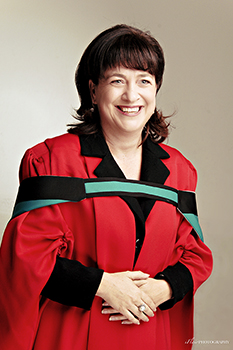Latest News Archive
Please select Category, Year, and then Month to display items
03 March 2021
|
Story Giselle Baillie
|
Photo Supplied
_web.jpg?sfvrsn=987e6620_1) Residence members who led the project, included:
Bohlokwa Rantja, the Residence Prime, and Transformation Committee members Nsuku Mutemela, Ofentse Motlakeng, Phindile Tjale, Madinku Mabala, Mmapopi Motshoso, Karabo Shuping, and Tagane Sekete.
Residence members who led the project, included:
Bohlokwa Rantja, the Residence Prime, and Transformation Committee members Nsuku Mutemela, Ofentse Motlakeng, Phindile Tjale, Madinku Mabala, Mmapopi Motshoso, Karabo Shuping, and Tagane Sekete.
The University of the Free State (UFS) Council approved and adopted Lehakwe House as the new name for the
NJ van der Merwe residence on the Bloemfontein Campus. The approval on 26 November 2020 followed a lengthy process of deliberation, consultation, and public engagement that has taken place since November 2019 and is aligned with the UFS Policy on Naming and Renaming. The name-change process was initiated by the Prime and Transformation Committee of the residence, guided by the
Unit for Institutional Change and Social Justice and supported by a multi-stakeholder committee representative of the residence, the Housing and Residence Affairs Office, the Department of Student Affairs, the Student Representative Council, and alumni.
Lehakwe – a precious gem
Following a lengthy evaluation process of the names submitted through a public voting and recommendation platform in July 2020, ‘Lehakwe’ – a Sesotho word referring to a ‘precious gem’ – emerged as the front runner. As many current and past members of the residence attest, this womxn’s residence has come to occupy a significant space within the hearts and minds of UFS students and the UFS community, given that its spirit has always been closely aligned with the constitutional values of dignity, equality, and freedom and with the human values of ubuntu. In this vein, the new name of ‘Lehakwe’ presents a consolidation of constitutional and university values into the day-to-day thinking, learning, living, and legacy spaces of students, as well as everyone who interacts and engages with the UFS.
First Dementia Care Mapper in Africa receives international award
2015-11-17

The first Dementia Care Mapper from Africa,
Dr Sanet du Toit.
Photo: iFlair Photography |
“In one facility, four elders who needed minimal assistance to eat were provided with an opportunity to sit at a separate table, and enjoy their breakfast as preferred – that is, to spread bread with butter, jam or marmite; to add their own milk and sugar to their tea.”
Dr Sanet du Toit described a scenario where staff members at an old-age home implemented recommendations she made following an observation she conducted.
“We do not think twice about doing this but, within institutional care settings, these ’normal’ routines are often replaced with practices that could be viewed as ‘time savers’. For example: everyone gets milky, sweet tea to drink,” she explains.
Yet, by creating an environment where the elderly living with dementia were at liberty to determine the amount of milk in their tea, active participation meant an improved well-being.
She was honoured with the International Association of Homes and Services for the Aging (IAHSA) Award for Excellence in Applied Research on 1 September 2015, at a joint conference held by the Aged & Community Services Australia (ACSA) and IAHSA in Perth.
This exceptional Occupational Therapist from the University of the Free State (UFS) emerged as the first Dementia Mapper from Africa. Dementia Care Mapping is a method used internationally to assess with the purpose of improving the quality of care given to residents in institutionalised settings.
The IAHSA award acknowledged her person-centered care training and research in South African residential care facilities while working at the UFS as a senior lecturer from 2003 to 2013. Currently, she is based at the University of Sydney, but remains an affiliated lecturer at the UFS Department of Occupational Therapy.
In 1992, she graduated with a BA in Occupational Therapy at the UFS, and went on to further her studies at various institutions. Also, she is one of the founding directors of the Eden Alternative South Africa, an advocacy for older persons’ rights within old-age homes. Over the years, Dr du Toit has won numerous awards for her research.